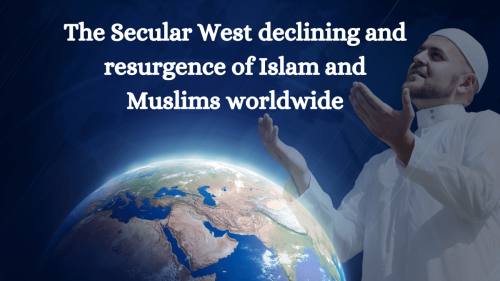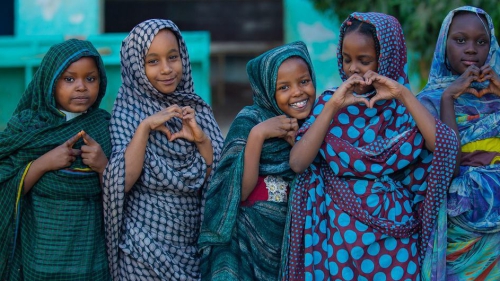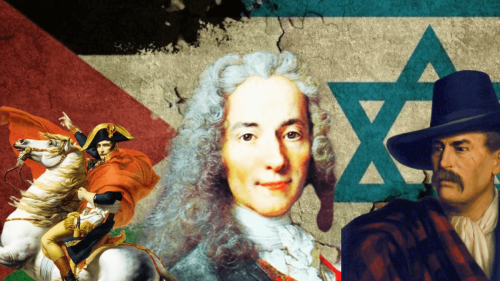Atop the Soapbox: A Millennial Message
Time is a relative proposition, manipulated by humans to meet our earthly needs and desires. It is an artificial yardstick that has no bearing on ultimate success or failure on the Day of Judgement, for as Muslims we are asked to treat each day, each prayer, each action as if it is the last of our short lives. Yet living as we do, engulfed by modern western society, Muslims must face the reality that time consciousness drives the world in which we live. And as we cross into the new millennium, we have a challenge to meet: to not let Islam erode in the next century as it has done in the current one.
We live in unprecedented times. For almost 90 years, Muslims have lived without the security of a functional Muslim state. The collapse of the Ottoman Empire marked the beginning of a dark period for Muslims. Had Mustafa Kamal considered that his work might contribute indirectly to catastrophes such as those in Palestine, Kashmir, Bosnia, Kosova and Chechnya because of the lack of cohesion amongst Muslims, he might have thought twice about his support for the dismantling of the Khilafah.
What many 20th century Muslims have failed to recognize, however, is that this dismantling of the Khilafah has had a great deal of momentum. As the "Sick Man of Europe" declined, the drive to carve up his lands and uncouple his people began. That drive did not stop at the close of the First World War. In fact, much of the subjugation of Muslims in the 20th century is nothing more than momentum exerting its influence on history. With this in mind, we understand Bosnia, Kosova and Chechnya in a different light. We see with more clarity in examining the upheaval in Algeria. And we know with certitude that crises in East Timor, Mindanao, Kashmir, Kuwait, Lebanon, Eritrea and a host of other places, could only take place in the absence of unity in the Muslim world.
At the dawn of the 21st century, however, Muslims have been given reprieve. The momentum is dissipating.
We stand poised to impact the world in ways beyond imagine as our heads of state age and pass away, giving rise to new leaders with new ideas. What must be paramount amongst these new ideas is unity -- political unity, economic unity, social unity and military unity.
If Europe can have a fully integrated European Union, then why can't Muslims have a United Federation of Islam or a Muslim World Union? In this burgeoning New World Order, Muslims must establish a sense of cohesion that provides for security and organization on all levels.
Why was NATO a mitigating force for Muslims in Kosova when an affective Muslim body of the same kind should have existed to fill that role? Why are the IMF and World Bank lenders of choice for Muslim countries when Muslims live atop enough wealth to sustain domestic prosperity and to fund worthwhile projects in other Muslim lands? Why do so many Muslim countries import from the West basic foodstuffs that could easily be gotten from a country such as Sudan, Bangladesh or Nigeria?
The answer is that avaricious plots for regional hegemony, desires to maintain the status quo in petty fiefdoms and insignificant political squabbles keep Muslim countries from realizing their potential, both collectively and individually.
It is commendable that Saudi Arabia has sent much needed aid to the ravaged Chechen population. But that does not solve the Chechens' problems. It is wonderful that Syria can sit down and be heard on the issue of Middle East Peace. But all by itself, with its own agenda, it does Muslims little good in the long run. It is wise for Muslim countries to be participatory in the United Nations. But they betray themselves by following the United Nations in its support for genocidal sanctions against the Iraqi people. There is something very wrong with the current picture.
The anecdotal evidence for the need for Muslim unity is overwhelming. Nationalism is a failed experiment in the Muslim world introduced by foreigners with mercenary motives. It was designed to divide and has succeeded. Kingdoms are nothing more than cash cows for the elite who act repressively to keep hold of their status. And parliamentary systems have been infiltrated by the corrupt to mimic the monarchies they wish they could be. But at the dawn of a new millennium, Muslims have the opportunity to reverse these trends. And with strategic implementation of economically and politically unifying initiatives, this reversal can be a boon for the entire world.
An economically and politically stable Muslim world can be of overwhelming benefit to the world at large. Instead of being refugees everywhere, Muslims would be welcomed for their commercial prowess and political importance. Instead of whining over injustices perpetrated against them, Muslims would either solve problem themselves or have enough clout in the international sphere to bring about quick resolution to crises.
All of this change is going to take significant planning and sacrifice on the part of all Muslims. The traditional lines that divide us will have to be abandoned in favor of more creative solutions. But Muslims really have no choice, lest we wish to continue to fight brush wars, apologize for terrorist attacks and complain about media misrepresentations. And what better time to embark on such a monumental task than now, as the world looks forward to a new millennium and new hope for mankind.
Ali Asadullah is the Editor of iviews.com

















